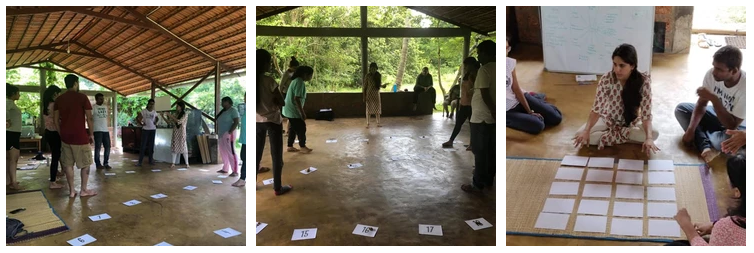Sessions on leading an eco-club
- K Ramnath Chandrasekhar
- Apr 11, 2022
- 1 min read
Community driven eco-clubs can be a great platform to connect children with nature during their formative years. One of aims of the Environment Education Awareness and Training scheme (EEAT) of the central Government is to promote environmental awareness among all sections of the society through platforms like eco-clubs. This scheme started in 1983-84. From then to now, there has been a sea of ecological destruction that’s unfathomable. During such a time, we cannot be solving today’s problems with yesterday’s solutions. There is a great deal of work that needs to be put to reimagine school eco-clubs because we have about 1.5 million schools while only 1.5 lakhs schools are part of the National Green Corps (NGC) eco-club Programme. The content and ways sessions are facilitated in these clubs is another factor. How might we improve this scenario through community participation so that they become relevant to our changing planet?
Combining a child-centred educational approach and ecology, educator Chandini Chhabra conducted a masterclass for our Fellows covering topics like, how do you go about planning eco-club sessions for children? How would you know what children know and what they would want to know? How do you use approaches from Montessori to make classes exciting for children? How to use nature as a platform for learning subjects like math, geography, biology and history?
The core philosophy of this - “If you have to teach well, you have to keep learning how to teach well.”
Thank you Chandini for this and sharing our mission of creating new roles for citizens to connect children with nature.
Fact source: Guideline for Environment Education Awareness and Training scheme document by MoEF&CC.










Comments